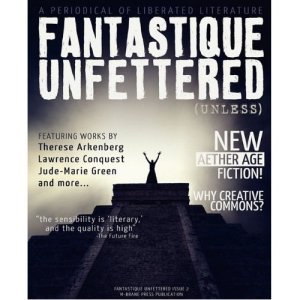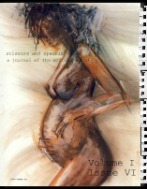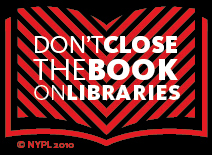Kieron Connolly is a typical Dublin writer: self-effacing and soft-spoken with a warm small-town quality about him that rivals the size of his dreams. Enlisted to teach a noveling workshop at the American Book Center in The Hague, he confesses that he’s worried that he won’t have anything relevant to tell a group of writers. We chit-chat about the football, and the Nobel prize winner until the dutiful Dutch workers at the ABC put out carafes of coffee and tea and call our workshop to order.

Kieron Connolly with the October 9 edition of the NRC Handelsblad Newspaper (Copyleft Avery Oslo)
And just like that, Kieron Connolly stands and his slight frame commands the attention of everyone in the room. His books are about staring into the abyss and what happens when the abyss stares back—they deal with addiction, spirituality, religion, and love.
His advice is startlingly straightforward. In addition to the “write every day” and “create a routine” stuff by which so many other writers swear, Connolly stresses the need for flexibility. “There are many ways to get from start to finish,” he says. The key is to allow each project to be its own thing and deal with it in the way it ought to be dealt instead of tackling a uniform approach.
Connolly uses his book, Harold as an example. While his other books took roughly one year to write, Harold took three. Connolly set himself the goal of writing about universal humanity. After two years of dead ends and frustration, it occurred to him that it was a futile task. “I’d be in a home for the bewildered if I did that,” he says with a laugh. He had to compromise on Harold, and graft humanity onto people in a limited situation. Rather than explore all of humanity, Connolly went deeply into one aspect and created a book he feels is stronger than his others.
On editing, Connolly says the most important thing is to let everything sit. Never edit right away, but edit before you begin writing the next few pages of your novel. “70% of the finished product is in the first draft,” he says. “I do write the first draft as if it’s the final draft. I give it my all in the first, but knowing that there will be a second.”
Connolly’s biggest edits usually concern his characters. He finds his characters need a bit of personality/humanity added on because you know them better at the end of the novel than you did when you started writing it.
In order to give everyone in the room a chance to plot a novel together with others (this really takes the pressure off), Connolly shows us an idea-generating game:
The Newspaper Novel-Plotting Game
To play, Pick a newspaper, any newspaper. (Even one in Dutch, as long as you have someone to translate it for you! ) Pick out an article at random and read. When you are done, ask some more questions of it. Who are the characters? What is not being said? What are the motivations of everyone involved? Where would you start a novel if you had to write a novel based on this article?

De Posthoorn, a local newspaper of The Hague (Copyleft Avery Oslo)
The group read an article about John Lennon’s fingerprints. According to the paper, John Lennon applied for a green card to America ages ago, and the FBI started a file on him. This file included a letter that contained the musician’s fingerprints. This file was stolen, and 20 years later it showed up in an auction house. It never made it to the hands of collectors, however: as it was being auctioned off the FBI confiscated it to put it back into their files.
At this point, you can ask yourself where the real story begins. Of course there are many answers:
*Start with the disgruntled FBI agent that stole the file 20 years ago to get a nest egg
*Or write about the current FBI agents whose job it was to travel to the auction, shut it down, and safely bring back the letter despite the many people determined to get their hands on it
*Start with upset auctioneer with ties to the memorabilia black market in Moscow who lost out on a lot of money after the letter was confiscated and the auction withdrawn
*Start with the die-hard fan named Lennon who inherited the love of this Beatle from his dead father and mortgaged everything to travel to the auction house and bid on the letter with the fingerprints
*Start with the independently wealthy yet slightly unhinged scientist with a lab in Cambodia who dreams of cloning Lennon from the possible DNA remains on the fingerprints
Which one you pick will influence the type of novel you will write. If you choose to tell the story of the FBI agent, you may likely end up with a thriller, while if you write from the POV of the fan, it lends itself more to a literary story about obsession and redemption. Writing about the scientist could bring your novel into the realm of sci-fi, while a focus on the auctioneer could turn out to be a fascinating crime novel or mystery.
From there, start fleshing out your characters. What do each of the other characters want? How will the desires of the main character you’ve chosen interact with the motivators of the other characters? Imagine how the encounters would play out, for example, as the unhinged scientist brushes shoulders with the FBI agents. Allow the newspaper story to guide you, but don’t feel constrained by it. And don’t be afraid to imagine as many scenarios as you can before deciding on the one you want to write.
Last and most importantly of all, Connolly doesn’t want you to take yourself too seriously. But don’t get him wrong: “it’s bloody serious business; we’re putting our hearts and souls into it.”

Check out this awesome sky I snapped from the balcony of my apartment when I got home this evening. If that's not noveling inspiration, I don't know what is! (Copyleft Avery Oslo)
I wrote the above from notes taken at Kieron Connolly’s novel-writing workshop at the American Book Center in The Hague, October 9, 2010. He is the author of the play Tuesday and the novels Water Sign, There is A House, and his latest (published this year), Harold.










